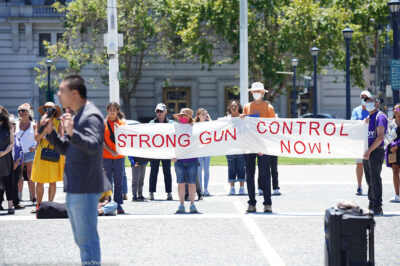New Report Finds VA Discriminates Against Military Sexual Assault Survivors
VA Offices Vary Widely in Treatment of Veterans Disability Claims, Male Survivors Face Additional Hurdles
November 7, 2013
FOR IMMEDIATE RELEASE
CONTACT: 212-549-2666, media@aclu.org
WASHINGTON — The Department of Veterans Affairs grants disability claims for military sexual trauma-related PTSD at significantly lower rates than other PTSD claims, according to a new report released today. Women veterans are disproportionately denied compensation based on PTSD, as they are more likely to file military sexual trauma-related PTSD claims, but male survivors who file military sexual trauma-related PTSD claims face particularly low grant rates compared to female veterans who file MST-related PTSD claims.
The report by the American Civil Liberties Union, Service Women’s Action Network, the ACLU of Connecticut, and the Veterans Legal Service Clinic at Yale Law School details new findings resulting from two recently settled Freedom of Information Act lawsuits against the VA.
“The VA must treat a veteran’s disability claim fairly when it is based on sexual violence,” said Sandra Park, senior staff attorney with the ACLU Women’s Rights Project. “It’s inexcusable that the VA discriminates against survivors who have sacrificed so much for our country, but we’re hopeful this report will lead to reform by shining a light on the terrible hurdles these veterans face.”
Key findings include:
- The VA granted disability benefit claims for PTSD related to military sexual trauma at a significantly lower rate than claims for PTSD unrelated to military sexual trauma every year from 2008 to 2012. The grant rate for military sexual trauma-related PTSD claims has lagged behind the grant rate for other PTSD claims by between 17 and 30 percentage points every year.
- Because female veterans’ PTSD claims are more often based on military sexual trauma-related PTSD than male veterans’ PTSD claims, female veterans overall are disparately impacted by the lower grant rates for military sexual trauma-related PTSD. For every year between 2008 and 2011, a gap of nearly 10 percentage points separated the overall grant rate for PTSD claims brought by women and those brought by men.
- Among those who file military sexual trauma-related PTSD claims, male veterans face particularly low grant rates when compared to female veterans who file military sexual trauma-related PTSD claims.
“At Service Women’s Action Network, we frequently hear women veterans impacted by military sexual violence describe feelings of betrayal, let down by a system they believed cherished and protected the American ideals of freedom and justice,” said Anu Bhagwati, Service Women’s Action Network executive director and former Marine captain. “The findings released today show the betrayal experienced by military sexual assault survivors also follow them into civilian life, as they struggle to make the case for the disability benefits they deserve to cope with the physical and emotional effects of assault.”
The report also highlights a number of regional VA offices classified as “worst offenders” for rejecting military sexual trauma-related PTSD claims. In 2012, the top 3 locations with the lowest approval rates were St. Paul, Minn., Detroit, and St. Louis. Additionally, the offices in Nashville and Los Angeles were highlighted for their notable improvements in approving military sexual trauma-related PTSD disability claims.
“This report is based on records provided by the VA to settle our Freedom of Information lawsuit,” said Andrew Schneider, executive director of the ACLU of Connecticut. “We’re still litigating our request for records from the Department of Defense so that we can continue to shed light on this very serious problem of military sexual trauma.”
“Most military sexual trauma claimants are women, so women disproportionately bear the burden of VA hostility to these claims. But men who bring military sexual trauma claims are denied at even higher rates than women,” said Kathryn Mammel, a member of the Veterans Legal Services Clinic at Yale Law School. “Leave it to VA to have figured out how to discriminate simultaneously against both male and female veterans.”
The report is available at: aclu.org/womens-rights/battle-benefits-va-discrimination-against-survivors-military-sexual-trauma
Additional documents available here: aclu.org/womens-rights/documents-released-department-veterans-affairs-regarding-military-sexual-trauma
Related Documents
Stay Informed
Sign up to be the first to hear about how to take action.




